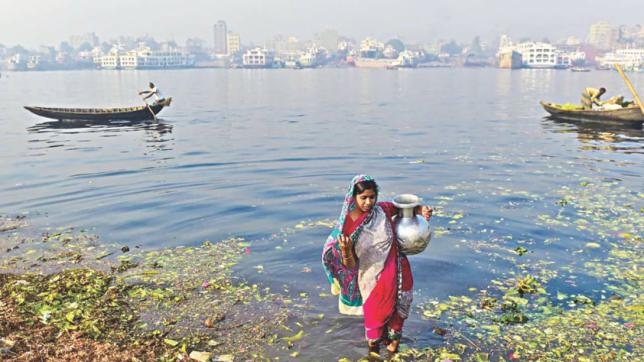Clean and Green Bangladesh: A goal that can be achieved

Think before you do, not after you're done,” says a Bengali proverb that applies to an urgent threat today for Bangladesh—major environmental problems spawned by rapid urbanisation and industrialisation.
A decade of strong economic growth helped Bangladesh reach lower middle-income status while sharply decreasing its poverty rate, a remarkable achievement. But like many countries in the world, such progress has come at considerable environmental cost.
According to our just released report, "Country Environmental Analysis", Bangladesh is among the countries most affected by pollution and other environmental health risks. The monetary cost to the Bangladeshi society of environmental degradation in urban areas, measured in terms of foregone labour output was equivalent to about one percent of the Gross Domestic Product (GDP) annually. If one takes into account the broader welfare impacts of mortality attributed to environmental risks, the economic cost is equivalent to 3.4 percent of the national GDP. Noncompliant industries and inadequate waste management of hazardous and nonhazardous materials are polluting the cities' air as well as surface and ground water. The study also indicated that many rivers around Dhaka are polluted.
The Institute of Health Metrics and Evaluation's Global Burden of Disease report for 2016 estimated pollution in its many forms led to one in four deaths in Bangladesh, which is among the highest rates in the world. Moreover, pollution affects poor communities most severely, further harming the ability of vulnerable people to benefit from economic prosperity.
In short, the old model of “grow now, clean up later” no longer works for countries, including Bangladesh. The country needs to reduce environmental harm and embrace green-growth policies to ensure sustainable economic development in the coming decades.

